Core Facilities News - August 2024 - Sustainability at ASU
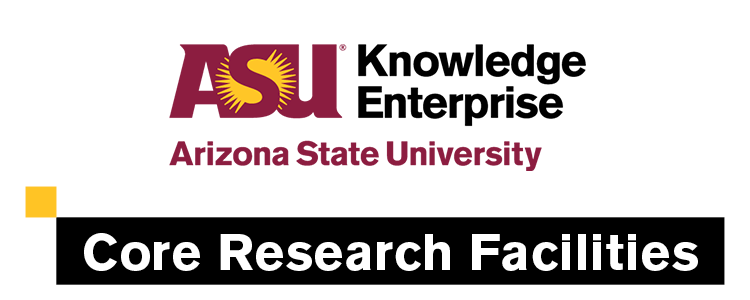
August 2024 Newsletter
Welcome to the ASU Core Facilities Newsletter. We are ready to support all your research goals. Please follow our LinkedIn page for additional resources and community information.
Supporting sustainability efforts
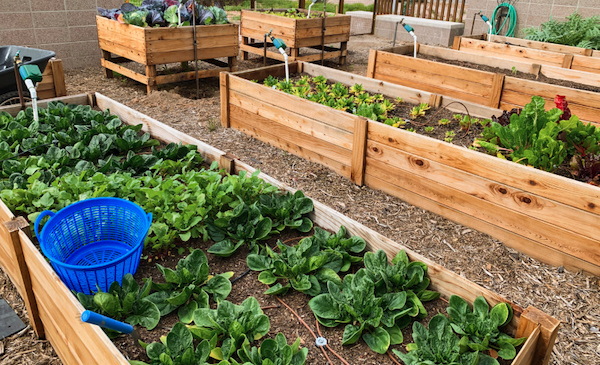
In an era of significant global climate changes, developing sustainable technology has become a crucial priority. Researchers and engineers are at the forefront of creating innovative solutions to combat environmental degradation and foster a sustainable future. ASU Core Research Facilities provide invaluable resources for this scientific advancement, contributing to the future of sustainability efforts.
ASU's sustainability goals and vision.
Prototyping green technology
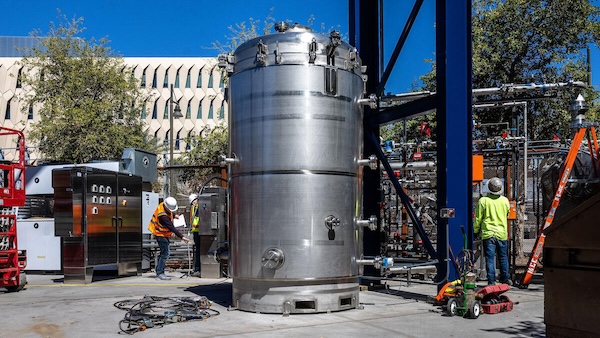
Reducing carbon emissions is crucial to combating climate change but, even with reductions, excess CO2 remains in the atmosphere. Direct air capture, a solution pioneered at ASU with support from our Instrument Design and Fabrication Core, addresses this issue. The Core developed components for Professor Klaus Lackner's prototype device, the MechanicalTree, which removes CO2 from the air.
How Carbon Collect Ltd.'s MechanicalTree is collecting atmospheric carbon.
The future of solar
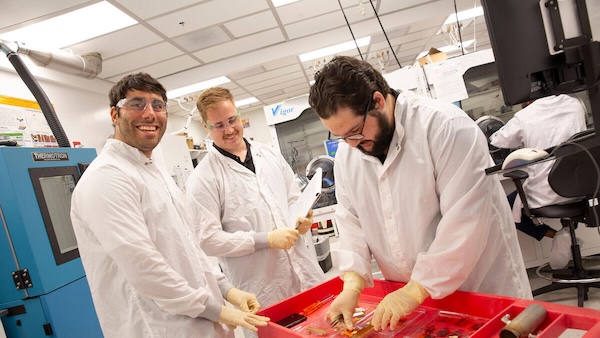
Transitioning from fossil fuels to renewable energy is crucial for combating climate change. ASU scientists are advancing this shift with multi-junction solar cells, making them more efficient than traditional cells. Leveraging the Advanced Electronics and Photonics and Solar Fab Core Facilities, ASU researchers are refining this technology to achieve commercial viability.
New testing for this new tech.
The Rolston lab, conducting this research.
Cooling off

Surfaces like roofs, roads and sidewalks can contribute to the urban heat island effect, which worsens air pollution and heat-related health issues. Using "cool" surfaces that reflect more solar energy can help mitigate this. Researchers in ASU's School of Sustainable Engineering and the Built Environment are utilizing Eying Materials Center spectroscopy and microscopy resources to analyze coated pavement samples to determine the efficiency of cool surfaces.
How cool pavement can affect the Urban Heat Island phenomenon.
Past, present, future
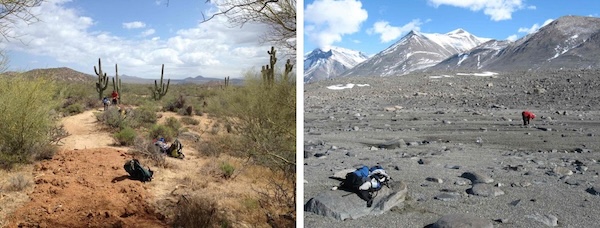
ASU researcher Becky Ball utilizes the sequencing capabilities of the ASU Genomics Facility to analyze Antarctic core samples. Funded by the National Science Foundation and National Institutes for Health, her work investigates factors controlling nutrient dynamics and decomposition in soils. Her lab aims to understand how deserts, like the Sonoran Desert and Antarctica, will respond to global change.
More about Becky Ball's research.

